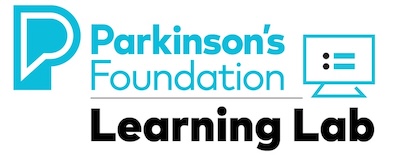Caregiver Burnout
 Care Partner burnout, a state of physical, emotional and mental exhaustion, happens when care partners try to do too much for too long.
Care Partner burnout, a state of physical, emotional and mental exhaustion, happens when care partners try to do too much for too long.
This course will help care partners recognize understand ways to prevent and address both caregiver strain and burnout by recognizing their limits and setting boundaries.
Syllabus | |
What is Caregiver Burnout? Caregiver Burnout and Strain Tips for Managing Care Partner Stress Strategies to Prevent or Address Burnout Pause and Reflect: Burnout and Strain The Impact of Caregiver Strain Did you know…? Pause and Reflect: The Impact of Strain Measuring Caregiver Burnout The Caregiver Health Self Assessment Pause and Reflect: Measuring Burnout Progressing Caregiver Strain Recognizing Caregiver Strain Symptoms of Caregiver Burnout Pause and Reflect: Strain or Burnout? Screening for Caregiver Burnout Screening for Caregiver Burnout Pause and Reflect: Screening Secondary Caregiving Caregiving is a Team Sport Getting Support Pause and Reflect: Getting Support Respite Care Types of Respite Care Finding a Professional on a Budget Find Your Local Aging and Disability Resources Pause and Reflect: Respite Care Accepting Help Asking for Help Pause and Reflect: Accepting Help Your Contingency Plan Your Contingency Plan Pause and Reflect: Your Contingency Plan Prioritizing Your Needs Therapy for Care Partners Care to Talk? The Benefits of Counseling Pause and Reflect: Prioritizing Your own Needs Recovering from Burnout Pause and Reflect: Recovering from Burnout Closing Thoughts - Center on Yourself Evaluation | |
Target Audience
This course introduces concepts that can be helpful for those new to the Parkinson’s community as well as those who are seasoned Parkinson’s care partners.
Secondary care partners are encouraged to complete this course as well to better understand the challenges the primary care partner faces and how to support them as well as their loved one with Parkinson’s.
Learning Objectives
Our hope is that care partners who take this course will:
- Recognize the progression from “caregiver stress” to “caregiver strain” to “caregiver burnout” and how to recognize each in themselves.
- Understand ways to identify and advocate for their needs as their loved one’s Parkinson’s progresses.
- Learn how to better take care of themselves as a care partner.
Caregiver Burnout Subject Matter Experts:
Lance M. Wilson, MSS, LSW,C-SWHC, ASW-G
Social Worker / Education & Outreach Coordinator
Parkinson’s Foundation Center of Excellence Coordinator
Jefferson Health Institute for Neuroscience
Lance is a Neuroscience Medical Social Worker who works with patients diagnosed with movement disorders such as Parkinson’s disease. Lance works with both patients and care partners providing education, emotional support, and assistance navigating both healthcare systems and systems along the continuum of care.
Annie Brooks, MSW
Director, Strategic Initiatives
Parkinson’s Foundation
Annie serves as the Director of Strategic Initiatives at the Parkinson’s Foundation. In this role, Annie provides leadership and day to day management of Foundation priority programs including the Newly Diagnosed initiative and the Hospital Care Initiative. Annie also created and oversees the Parkinson’s Foundation Care Partner Program online courses for Care Partners. and is passionate about empowering diverse communities to achieve their best health and social outcomes.
Expert Care Partners:
Lorri Russell
Lori cared for her husband, Bob, for nearly 20 years. She describes their experience navigating Parkinson’s after he was diagnosed just six months after they were married, and the things that they, alongside their family, have learned along the way.
Marlene Perdan
Marlene’s has been in various caregiving roles for the last fifteen years. Her husband, Bill, was diagnosed with young onset Parkinson’s and his father, Marlene’s father-in-law, was diagnosed with PD shortly after. More recently, Marlene’s sister was also diagnosed with PD. She shares how she learned to navigate gradual changes and the bumps along the way.

 Facebook
Facebook X
X LinkedIn
LinkedIn Forward
Forward